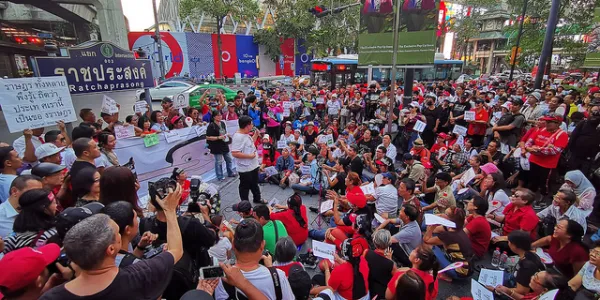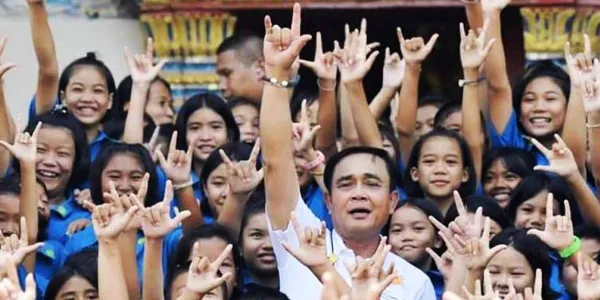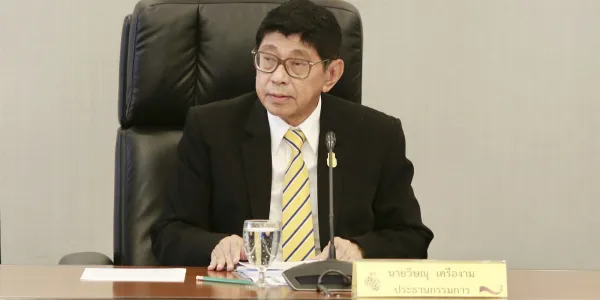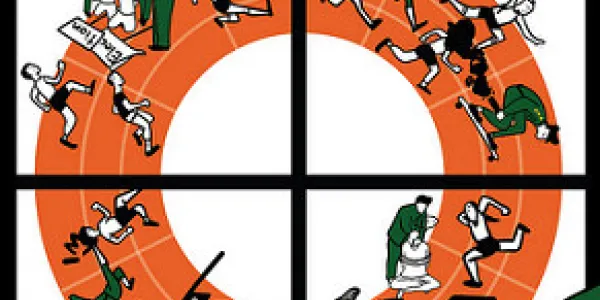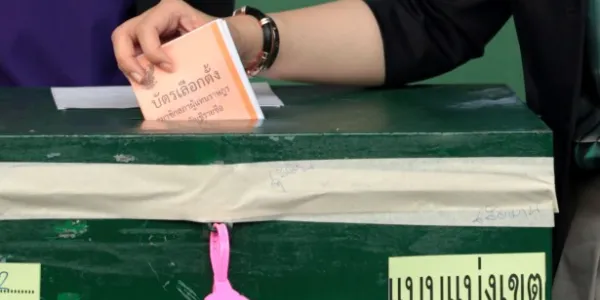By Prachatai |
By Supalak Ganjanakhundee |
<div>Basically, ordinary people might love to have the right to choose their own representatives to sit in the top jobs in the country. Therefore, elections matter. It is strange to see a certain group of people in Thailand has come out to show their resolve against elections, on the ground that the poll might not bring ‘good’ people into governance. </div>
<div> </div>
<div>While an election would not bring good people or even democracy to the politics, authoritarians in Southeast Asia indeed need elections to justify their governance.
</div>
<div> </div>
<div>Prachatai asked people from across the political spectrum two big questions: 1) if they are going to vote for an NCPO party, 2) if they are okay with a proposed by politicians from Pheu Thai and the Democrats is that the two parties might form a coalition in the next election to prevent an ‘outsider PM’. </div>
<p></p>
<div>The junta has file charges against seven pro-democracy activists for criminal sedition and violating the junta’s public assembly ban after the seven held a symbolic activity calling for elections last weekend.</div>
<div> </div>
<div>On 30 January 2018, the junta has ordered seven of the most prominent pro-democracy activists charged with crimes including sedition after they launched a protest campaign calling for general elections to be held in November.</div>
<div> </div>
<div><em>Read more at <a>
</a></em></div>
<p>Amid rumours that the junta will form its own political party to compete in the political arena, the human rights advocacy group iLaw points out that the regime does not need to form a party to prolong its rule.</p>
<p>According to <a href="https://www.facebook.com/iLawClub/photos/a.10150540436460551.646424.299528675550/10159645027905551/?type=3&theater">iLaw</a>, under the new political system, the National Council for Peace and Order (NCPO) does not need to establish a political party to prolong its rule. It can instead rely on the senate.</p>
<div>
<div>
<div>After raising hopes, the junta head will not be lifting the ban on political activities even though the royal cremation is over, explaining that the timing remains inappropriate. </div>
</div>
<div> </div>
<div>Junta leader Gen Prayut Chan-o-cha told the media today that the ban on political activity will remain in place to ensure social order and stability. He stated once again that the junta will revoke the ban when the proper time comes.</div>
<div> </div>
<div>“I ask you to trust me. I myself am aware and thinking about this issue.
</div></div>
<div>
<div>Political parties, despite their divergent ideologies, are united in urging the junta to lift its ban on political activity now that the Organic Act on Political Parties is in effect.
</div></div>
<p>The general who led the 2006 coup has called on the current junta to stick to the election roadmap.</p>
<p>On 1 October 2017, Gen Sonthi Boonyaratglin, the leader of the 2006 coup, invited top military leaders to his 71<sup>st</sup> birthday celebration at his residence at the 11th Infantry Regiment King’s Guard in Bangkok, <a href="http://www.tnamcot.com/view/59d08122e3f8e4e10807abbf">the Thai News Agency reported</a>.</p>
<div>
<div>Thailand has taken another step closer to general elections after the promulgation of the new junta-written election commission law. New election commissioners will be selected by the 250 junta-appointed senators. </div>
<div> </div>
<div>On 13 September 2017, the <a href="http://www.ratchakitcha.soc.go.th/DATA/PDF/2560/A/093/1.PDF">Organic Act on the Election Commission</a> was published in the Royal Gazette after being passed by the National Legislative Assembly on 8 September.
</div></div>

